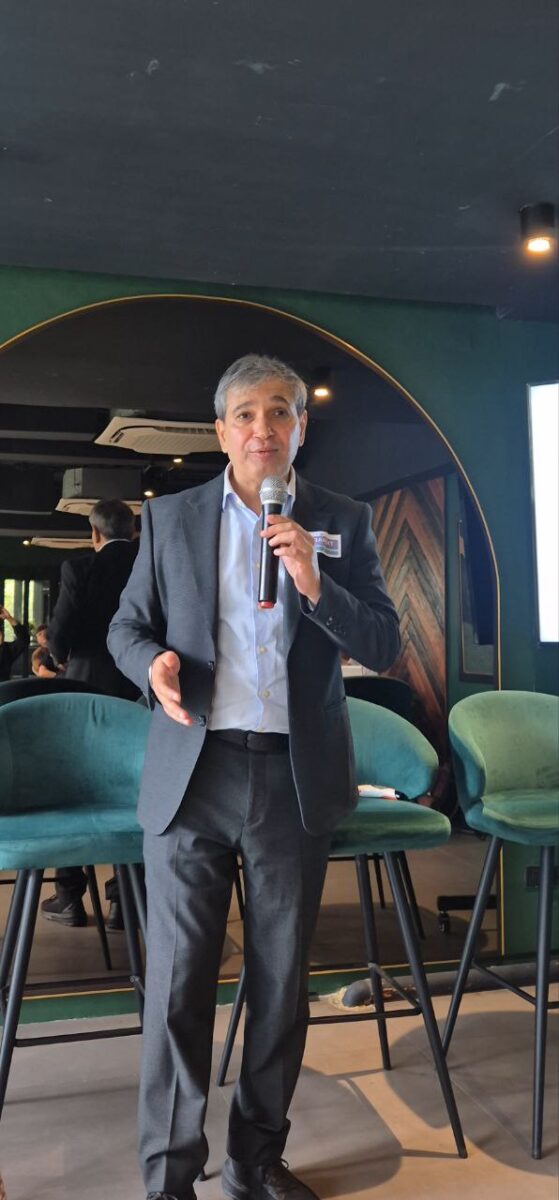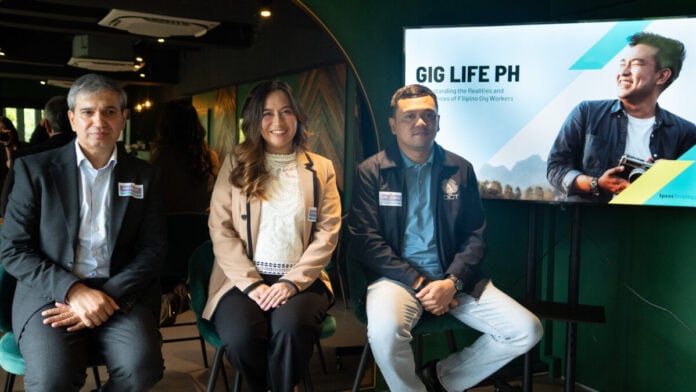Ipsos, one of the world’s leading market research companies, announces the findings of a nationwide survey on Gig Life PH: Understanding the Realities and Preferences of Filipino Gig Workers, supported by the Department of Information and Communications Technology (DICT), which aims to understand the motivations, experiences, and needs of Filipino gig workers, while identifying gaps in the sector to guide policy-making decisions.
Key findings of the Ipsos Gig Life Study include:
- The sweet spot: Gig workers enjoy flexibility and earn more without having to give up their full-time jobs. Gig workers primarily pursue gig work to earn extra income (59%). Gig work’s inherent flexibility, with 47% enjoying control over their hours and 35% favoring the ability to work from various places, remains a fundamental appeal, underlining why many consider gig work.
- Gig work — stopgap or viable career choice? Six of ten believe that gig work is a strategic choice and a viable long-term career option. Many gig workers see flexible work arrangements as a pathway to achieving broader financial and personal goals, vs. a fast-income route, with 30% having no plans to stop gig work at all.
- The best of both worlds? Gig workers want freedom at work and a safety net with retirement, savings, and healthcare perks. The majority of gig workers actively save for retirement. Gig workers express a strong preference for managing their own social benefits to match personal needs, with 64% focusing on retirement planning and 58% prioritizing access to healthcare services.
- Despite its growing popularity, gig work serves as an additional income stream. Most respondents, 61%, engage in gig work part-time to supplement their primary income from full-time jobs or business ventures.
- The Philippine gig economy reveals age, gender, and educational divides across different gig types. Younger Filipinos comprise the majority of the gig workforce, with the 25-34 age group accounting for approximately 37% of workers. Non-location-based gig workers hold higher educational qualifications than their location-based counterparts. Non-location-based gigs tend to attract more women (62%) than physically demanding location-based gigs, which have a male majority (76%).
- Despite income swings, gig workers stay upbeat while seeking pay that matches their hustle. Most gig workers face earnings inconsistency, with monthly earnings fluctuating by 10% to more than 30%. Despite this variability, 78% of gig workers remain satisfied with the flexibility and potential gig work offers.
Christine Dugay, Ipsos Strategy3 in the Philippines, principal, said: “The gig economy is growing fast in the Philippines—platforms have reshaped how we work, granting autonomy and helping households stay financially resilient—but gig workers still face volatile earnings, pay discrepancies, and limited social protection. Gig workers value flexibility and the opportunity to increase their income, yet they also clearly want fair pay standards and comprehensive, portable benefits. We find that there are significant opportunities for government and platforms to further support gig workers in building a balanced ecosystem that powers growth and drives labor market transformation in the country.”

Moving Forward with Tech
To sustain growth, gig workers need better access to digital tools, platforms, and ICT infrastructure, especially in underserved areas, the study underscored. Technology is the backbone of the Philippine gig economy, enabling flexible work arrangements and connecting workers with income opportunities.
At the same time, upskilling programs are essential to help workers remain competitive and move up the value chain.
The Ipsos study cited DICT’s ASCEND (Accelerating Successful Filipino Online Freelancers to High-Value, Niche, and Digital Services) and SPARK (Skills Package for Accelerated Remote Knowledge-Work) programs, which aim to equip gig workers with advanced digital skills, provide certifications, and open pathways for higher-value opportunities in the global digital economy.
Dir. Jhino B. Ilano, DICT Bureau Director III for ICT Industry Development, said “The data, insights, and findings from the ‘Gig Life PH’ study of Ipsos Strategy3 are invaluable to us, as these help frame the realities of the gig workers of the Philippines. Studies like these are relevant and are directly aligned with our mission to create digital and digitally-enabled jobs. By understanding the realities and preferences of Filipino gig workers, the ICT Industry Development Bureau of DICT can effectively design, continuously implement, and encourage multi-stakeholders’ approach in initiatives like the EDGE PH Program, ASCEND, and even ILCDB’s SPARK to support a sustainable and future-ready gig ecosystem for all Filipinos.”
